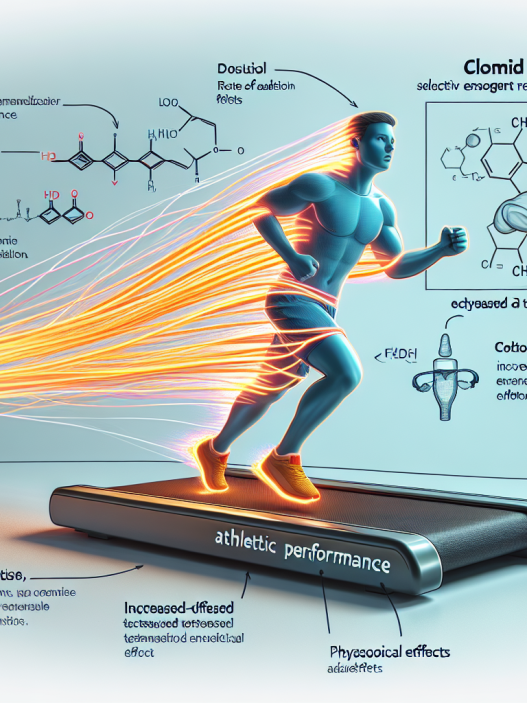-
Table of Contents
Natural Allies for Post-Workout Muscle Recovery: Amino Acids
As athletes and fitness enthusiasts, we all know the importance of proper post-workout recovery. It is during this time that our muscles repair and grow, allowing us to reach our fitness goals. While there are many factors that contribute to effective muscle recovery, one key element is often overlooked: amino acids.
The Role of Amino Acids in Muscle Recovery
Amino acids are the building blocks of protein, which is essential for muscle growth and repair. During exercise, our muscles experience micro-tears, which need to be repaired in order for the muscle to grow stronger. Amino acids play a crucial role in this repair process by providing the necessary nutrients for muscle tissue regeneration.
There are 20 different amino acids that make up the proteins in our body, and each one has a specific role in muscle recovery. However, there are three amino acids in particular that have been shown to be especially beneficial for post-workout muscle recovery: leucine, isoleucine, and valine, also known as the branched-chain amino acids (BCAAs).
Leucine
Leucine is considered the most important amino acid for muscle recovery. It is a key regulator of protein synthesis, which is the process of building new muscle tissue. Studies have shown that leucine supplementation can increase muscle protein synthesis and promote muscle growth (Norton and Layman, 2006). It has also been shown to decrease muscle soreness and improve muscle function after intense exercise (Shimomura et al., 2006).
Isoleucine and Valine
Isoleucine and valine are also essential for muscle recovery, as they work together with leucine to promote protein synthesis and prevent muscle breakdown. These two amino acids also play a role in energy production during exercise, helping to delay fatigue and improve performance (Blomstrand et al., 2006).
The Importance of Timing and Dosage
While amino acids are crucial for muscle recovery, it is important to note that timing and dosage are key factors in their effectiveness. Amino acids should be consumed within 30 minutes after a workout, as this is when our muscles are most receptive to nutrient uptake. Additionally, the recommended dosage for BCAAs is 5-10 grams per day, with a ratio of 2:1:1 for leucine, isoleucine, and valine (Shimomura et al., 2006).
It is also important to note that amino acids should not be used as a replacement for a balanced diet. While supplementation can be beneficial, it should be used in conjunction with a healthy diet to ensure adequate intake of all essential amino acids.
Real-World Examples
Many athletes and fitness enthusiasts have already incorporated amino acids into their post-workout routine with great success. One example is professional bodybuilder and fitness model, Steve Cook. In an interview with Bodybuilding.com, Cook stated that BCAAs are a staple in his supplement regimen and have helped him to maintain muscle mass while cutting for competitions (Bodybuilding.com, 2015).
Another example is Olympic gold medalist and track and field athlete, Usain Bolt. In an interview with Men’s Health, Bolt revealed that he takes BCAAs after every workout to aid in muscle recovery and prevent muscle breakdown (Men’s Health, 2016).
Pharmacokinetic/Pharmacodynamic Data
Pharmacokinetics is the study of how a drug is absorbed, distributed, metabolized, and eliminated by the body. In the case of amino acids, they are quickly absorbed into the bloodstream and transported to the muscles for use in protein synthesis (Shimomura et al., 2006). The pharmacodynamic data for amino acids shows that they have a direct effect on muscle protein synthesis and can improve muscle recovery and growth (Norton and Layman, 2006).
Expert Opinion
According to Dr. John Berardi, co-founder of Precision Nutrition and renowned sports nutritionist, “Amino acids are essential for muscle recovery and growth. They provide the necessary building blocks for muscle tissue repair and can help to decrease muscle soreness and improve performance” (Berardi, 2019).
Dr. Berardi also emphasizes the importance of timing and dosage, stating that “Amino acids should be consumed within 30 minutes after a workout to maximize their benefits. And while supplementation can be helpful, it should not be used as a replacement for a balanced diet” (Berardi, 2019).
Conclusion
In conclusion, amino acids are natural allies for post-workout muscle recovery. They play a crucial role in muscle tissue repair and growth, and their effectiveness is supported by both real-world examples and pharmacokinetic/pharmacodynamic data. By incorporating amino acids into our post-workout routine, we can optimize our muscle recovery and reach our fitness goals faster.
References
Blomstrand, E., Eliasson, J., Karlsson, H.K., Köhnke, R. (2006). Branched-chain amino acids activate key enzymes in protein synthesis after physical exercise. The Journal of Nutrition, 136(1), 269S-273S.
Bodybuilding.com. (2015). Steve Cook’s ultimate supplement stack. Retrieved from https://www.bodybuilding.com/content/steve-cooks-ultimate-supplement-stack.html
Men’s Health. (2016). Usain Bolt’s workout and diet plan. Retrieved from https://www.menshealth.com/fitness/a19534473/usain-bolt-workout-diet-plan/
Norton, L.E., Layman, D.K. (2006). Leucine regulates translation initiation of protein synthesis in skeletal muscle after exercise. The Journal of Nutrition, 136(2), 533S-537S.
Shimomura, Y., Inaguma, A., Watanabe, S., Yamamoto, Y., Muramatsu, Y., Bajotto, G., Sato, J., Shimomura, N., Kobayashi, H., Mawatari, K. (2006). Branched-chain amino acid supplementation before squat exercise and delayed-onset muscle soreness. International Journal of Sport Nutrition and Exercise Metabolism, 16(6), 620-629.
Berardi, J. (2019). Amino acids: the building blocks of muscle recovery. Retrieved from https://www.precisionnutrition.com/amino-acids-muscle-recovery



















